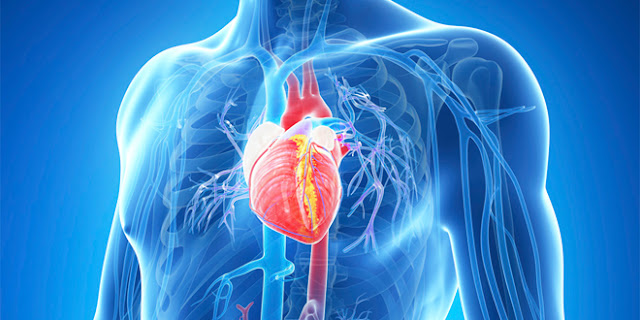
find out 09.27.17 Tom Moriarty is Chief Policy and External Affairs Officer and General Counsel for CVS Health. In this article he shares insights about the challenges and opportunities associated with biosimilar medications. In recent weeks, the issue of biosimilars as a means of providing access to more affordable medications and increasing competition has come into greater focus. During both a meeting with FDA Commissioner Scott Gottlieb, M.D., and a panel at Bloomberg Intelligence s Biosimilars Conference, discussions examined the different regulatory and health system dynamics that impact biosimilar uptake across the U.S. and Europe. My fellow panelists included: Professor Joao Goncalves, the head of Biopharmaceutical and Molecular Biotechnology at the Research Institute for Medicines of the University of Lisbon Dr. Sandy Eisen, Chief Medical Officer for Frontline Pharma Consulting Ltd Aude Gerspracher, Director of Research, Litigation & Policy for Bloomberg Intelligence In both of these discussions, three important ways that biosimilars can make an impact on medication access and affordability were highlighted. 1. Biosimilars Help Drive Down Health Care Costs U.S. health care spending is on the rise, and a large part of increased spending is due to rising drug costs, particularly for expensive biologics and other specialty drugs. In fact, these drugs accounted for 30 percent of the market in 2012, and may be as high as 50 percent of the market by next year. By 2020, it is estimated that the U.S. will be spending more than $250 billion on biologics.[1] Increased competition from biosimilars , which are essentially generic versions of biologics, can help mitigate the impact of high-cost drugs and support broader access as more affordable alternatives for patients. We know there is already receptivity for these additional options. Our research shows that 60 percent of Americans would accept a biosimilar substitute for a brand name biologic if it would save them money. 2. Regulatory Barriers Have Slowed Biosimilar Uptake in the U.S. Compared to the European Union (EU) Despite the promise biosimilars hold for reducing drug costs, and ultimately health care costs, the U.S. regulatory process has not kept pace with scientific advances in drug development. As a result, the U.S. Food and Drug Administration (FDA) approved the first biosimilar in 2012 six years after Europe s first biosimilars and has only approved a total of six biosimilars, compared with the more than 30 biosimilars approved in the EU. What s more, as a result of litigation between drug companies in the U.S., only three of the six biosimilars that have been approved are available to patients. This is problematic, because without competition from biosimilars, most biologics do not have available alternatives that would apply pressure in the market and drive down costs. The panel agreed that paving a clearer pathway to FDA approval, as well as reducing biologic market exclusivity from 12 to seven years, would help speed lower-cost biosimilars to market. 3. Increasing Biosimilar Competition and Innovation Can Benefit the U.S. Health System Biosimilars have shown the potential to help bend the cost curve in the EU, poised to save the system an estimated $44 billion by 2020.[2] Despite this great promise, we need the regulatory processes in place to get us there. It is encouraging to see that the FDA, led by Commissioner Scott Gottlieb, is currently looking at reforms that focus on increasing competition, particularly through reducing approval times for drugs and addressing the approvals backlog. Going forward, the panel affirmed that aligning private sector and public policy interests to create a health system that fosters competition and innovation benefits everyone. When we reduce health care costs, we can increase investment in areas that drive business growth and job creation, innovation and infrastructure development. For more information on how CVS Health is working to ensure consumers have access to affordable medicines, check out our Rising Drug Prices information center. And to stay informed about the most talked-about topics in health care, register for content alerts and our bi-weekly health care newsletter . 1 Biosimilars Council , 2017. 2 Biosimilars and The European Experience: Implications For The United States , Health Affairs. Related Articles On Target: What the New Hypertension Guidelines Mean New hypertension guidelines could mean lifestyle and medication changes for consumers. CVS Health tools and experts can help. 5 Things Pharmacists Do Beyond the Pharmacy Counter CVS pharmacists are on the front lines of health care and do much more for our patients than fill prescriptions. Supporting Better Health across the Nation: CVS Health Impact Dashboard Explore data at the national and state level in our new interactive dashboard. Related Press Releases 10.12.17 CVS Health Recognizes its 30,000 Pharmacists during American Pharmacists Month 10.04.17 CVS Pharmacy Introduces ScriptPath Prescription Schedule for Patients 06.13.17 CVS Health Joins Drug Store News and Mack Elevation in Convening Health Innovation Summit 02.16.17 FORTUNE Recognizes CVS Health on List of "World's Most Admired Companies" 10.03.16 CVS Health Recognizes its 30,000 Pharmacists during American Pharmacists Month 06.16.16 CVS Health CEO Larry Merlo Keynotes at 2016 AHIP Institute and Expo treatments
development Biosimilars Can Increase Competition and Reduce Costs absolutely everyone
EmoticonEmoticon